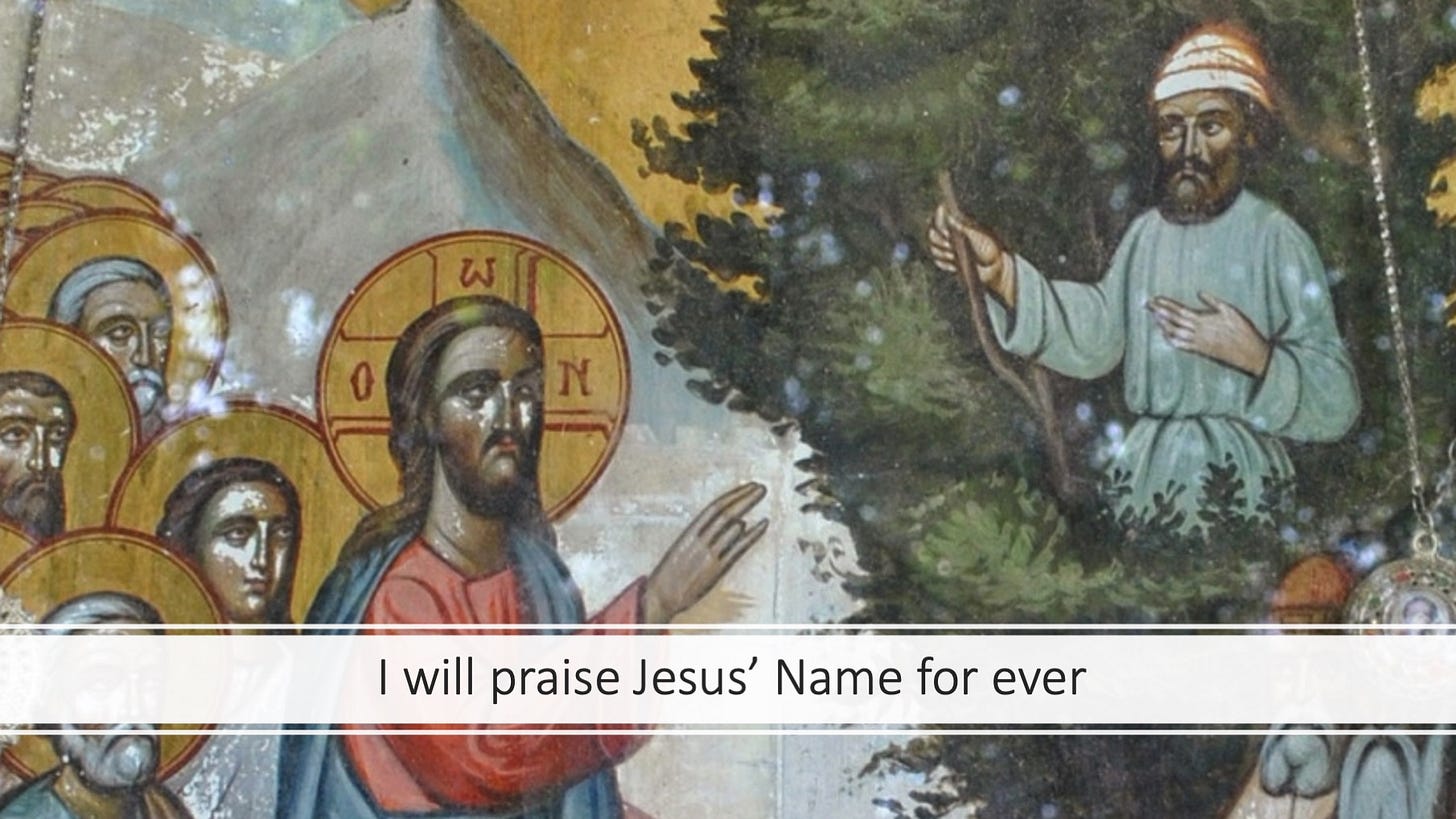Wisdom 11:22-12:2; Psalm 145; 2 Thessalonians 1:11-2:2; Luke 19:1-10
Watch Video Reflection on YouTube
According to Origen, Jericho represents the world into which humanity was exiled after their sin. It is in that city that Jesus meets a blind beggar (Luke 18:35) and a rich tax collector (Luke 19:1-2). They both symbolize the condition of humanity: spiritual blindness and sinfulness. They both wanted to meet Jesus. The blind beggar wanted to see and the tax collector wanted to see the One who "receives sinners and eats with them" (Luke 15:1). But they needed to overcome the same obstacle: the crowd (Luke 18:39; 19:3).
Who is God? On the one hand, "before the Lord the whole universe is as a grain from a balance" (Wisdom 11:22), on the other hand, He comes to stay at our houses (Luke 19:5). He is beyond our understanding and yet so near to us that "in Him, we live and move and have our being" (Acts 17:28). God loves "all things that are", He has mercy on all, and He overlooks "people's sins that they may repent" (Wisdom 11:23-24).
“Lord and Friend of Life” (Wisdom 11:26) meets Zacchaeus by a sycamore tree (Luke 19:4). Jesus’ name means "God saves" and Zacchaeus’ name means "pure or innocent". The biblical sycamore tree is also called the sycamore fig but its fruits look and taste different than the fruits of a fig tree. This difference gave Saint Augustine an idea to call it a tree of "silly figs" perceiving in it a figure of the cross. Thus, the one who lost his purity through sin accepts the folly of the Cross (1 Cor. 1:18) and meets the One who saves.
God's visitation produces the fruits of repentance. The rich tax collector becomes a great benefactor of the poor (Luke 19:8) and so the impossible happens, namely “for someone who is rich to enter the kingdom of God" and "be saved" (Luke 18:25-27). Zacchaeus gained what the rich ruler failed to get (Luke 18:18-23). He received Jesus with joy while the rich ruler left Jesus sad unable to part with his possessions to follow Christ (Luke 19:6; 18:23). Zacchaeus becomes a model for all rich Christians. They should "be generous and willing to share, thus storing up treasure for themselves as a good foundation for the future, so that they may take hold of that which is truly life" (1 Tim. 6:18-19).
"God so loved the world" (John 3:16). His only begotten Son descended from heaven into the world in order "to seek and save the lost" (Luke 19:10). He found him in Jericho, in the lowest city in the world located 258 meters below sea level. "Today salvation has come to this house" (Luke 19:9). But how about other houses? When He left Zacchaeus' house, Jesus went up to Jerusalem and climbed the tree of the Cross to nail the sins of Zacchaeus and all of us to it (Col. 2:14). The divine "must" (Luke 19:5) that brought Him to the house of Zacchaeus would also bring Him to the Cross (Mark 8:31). "By his obedience unto death, Jesus accomplished the substitution of the suffering Servant, who "makes himself an offering for sin", when ‘he bore the sin of many’ (CCC, 615).
The day of the Lord (2 Thess. 2:2) refers to that ‘day’ when Christ will come to save those who wait for Him (Heb. 9:28) and to judge the nations (Matt. 25:31-32). We do not need to be afraid of its coming (2 Thess. 2:1-2). Instead, with the help of God, we should "fulfill every good purpose and work of faith" (2 Thess. 1:11). And when that day arrives, we shall praise our Lord Jesus with the words of the Psalmist: "I will praise your name forever, my king and my God" (Ps. 145:1).




